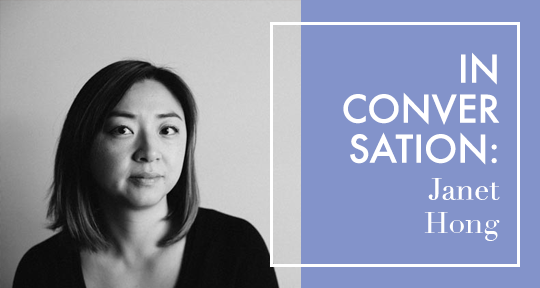Janet Hong is a Vancouver-based writer and literary translator who has brought acclaimed Korean authors such as Han Yujoo and Ha Seong-nan to an Anglophone audience. Her newest translation, the novel Lemon by Kwon Yeo-Sun, is a masterfully crafted novel of grief’s maddening proportions.
During the chaos of the 2002 FIFA World Cup in Korea, high schooler Hae-on is murdered and her killer is never charged. Over the next seventeen years, Hae-on’s sister, Da-on, works by any means possible to piece together the truth of what happened that summer. Taut and propulsive, Lemon expertly weaves the past and present in a page-turning thriller, riding on suspense but sensitive and precise in touching upon the societal contexts of a violent crime—that of class, of gender, of feminine beauty. In the interview below, Hong discusses how she captures the specificities of Korean literary references in English, as well as the intricacies and opportunities in translating dark stories.
Rose Bialer (RB): Kwon Yeo-sun is an award-winning author and Lemon is her first book to appear in English. Can you tell me a bit about how you came to this project and what attracted you to the novel?
Janet Hong (JH): A contact I know at Changbi, the Korean publisher of Lemon, flagged the book for me when it first came out. I read it and loved it, so I mentioned I was interested in translating the book. Shortly after, the book came to be handled by a literary agency, and Changbi let them know about my interest in the project. Luckily, the agents responsible and I knew each other, so everything progressed smoothly from that point.
I was attracted to the polyphonic nature of the book and wanted to take on the challenge of trying to render the different voices and points of view in English. I’m usually more interested in literary fiction, but I like that this work transcends the crime novel genre and plumbs the depths of grief, death, guilt, revenge, and injustice.
RB: Let’s discuss the polyphonic style you mentioned, which I also found very compelling. Lemon follows Da-on and two of Hae-on’s classmates over the seventeen years following Hae-on’s murder. All of these women have very distinct tones and styles of speaking—though I may add that none of them are particularly reliable narrators. What was it like channeling the perspectives of different characters? Did you find one of the women’s voices to be more difficult to translate than the others?
JH: It was quite a challenge to capture their voices. Not only are the three women very different from one another, but they each have distinct styles of speaking, as you mentioned. I wanted it to be very clear for the reader who is speaking, not only by the content of what they say, but by their diction and syntax. I struggled particularly with Yun Taerim’s sections, since they’re monologues in a sense—if there was a way to make her speech sound natural and quirky, as if we were actually overhearing a one-sided phone conversation, yet also make sure that the whole thing also can be understood as a work of art. I’m not sure I succeeded. For that reason, I don’t like to re-read my work once it’s published. READ MORE…

